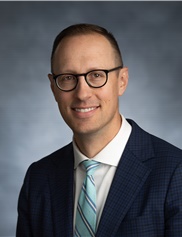Grants Funded
Grant applicants for the 2024 cycle requested a total of nearly $3 million dollars. The PSF Study Section Subcommittees of Basic & Translational Research and Clinical Research evaluated more than 100 grant applications on the following topics:

The PSF awarded research grants totaling over $650,000 dollars to support more than 20 plastic surgery research proposals.
ASPS/PSF leadership is committed to continuing to provide high levels of investigator-initiated research support to ensure that plastic surgeons have the needed research resources to be pioneers and innovators in advancing the practice of medicine.
Research Abstracts
Search The PSF database to have easy access to full-text grant abstracts from past PSF-funded research projects 2003 to present. All abstracts are the work of the Principal Investigators and were retrieved from their PSF grant applications. Several different filters may be applied to locate abstracts specific to a particular focus area or PSF funding mechanism.
Utilizing Smart Phone Technology for Hand Surgical Education
Shaun Mendenhall MD
2016
Southern Illinois University School of Medicine
ASE/ PSF Research Grant
Education, Technology Based
Current smartphones and tablets have significant computing power and their widespread adoption in healthcare allows surgical educators to create realistic simulations for surgical training. This is especially needed in today's surgical training environment where work hours are restricted. Furthermore, improved methods of communication between plastic surgical trainees and faculty, for clinical information sharing and teaching, are needed. Mobile device applications are an ideal tool to accomplish these tasks because of their ubiquitous use among residents and faculty alike. Touch Surgery™ is a surgical simulation application designed for mobile devices that allows trainees to learn and rehearse the steps of actual surgical procedures. The application also has components used for sharing of updated literature, educational content, and confidential case information. Partnering together with the makers of Touch Surgery™, we aim to develop and validate mobile device content that will enhance the surgical training experience and ultimately improve patient care. Specific aim 1: We will develop an educational module on the Touch Surgery™ application for the surgical treatment of thumb CMC joint arthritis. We will then validate the content of the educational module by a randomized trial of surgical trainees performing the operation on a cadaver model. We hypothesize that preparation for surgery utilizing the mobile device module will improve surgical performance of surgical trainees compared to those using traditional methods of preparation. Specific aim 2: We will develop a custom and secure communication forum on the Touch Surgery™ app that will allow sharing of interesting topics and cases in plastic surgery with a group of surgical trainees. We hypothesize that this forum will enhance surgical education and effective trainee/faculty communication in a HIPPA compliant manner. Specific aim 3: The mobile device modules have an inbuilt assessment tool that measures errors, decision times, and movements of the surgical trainee during module participation. These metrics can be used to provide the user and residency program feedback. We will compare these metrics with the cadaver surgery scores for the surgical trainees in the Touch Surgery™ arm of the study. We hypothesize that the level of engagement and performance on the cognitive training in the module will correlate with technical performance in the actual surgical procedure.
 Dr. Shaun Mendenhall is currently a 5th year integrated plastic surgery resident at the Southern Illinois University School of Medicine. He is the middle child of 5 and the first person in his family to attend a university. He completed a bachelor’s degree at the University of Utah in biology where he was awarded a teaching assistant of the year award and received distinction as an undergraduate research scholar. He went on to complete medical school with honors in surgery at the same institution where he earned multiple awards including the best honors research project in surgery and the Edward W. Nelson M.D. Distinguished Student of Surgery Award. He has presented at many regional and national research meetings, winning multiple awards including best paper awards at ASPS three years in a row. Dr. Mendenhall has demonstrated excellence in teaching throughout residency as has won teaching awards each year following internship (2012-2015). He has also demonstrated strong leadership by establishing a multidisciplinary hand transplant program at SIU with the support and mentorship of Dr. Michael Neumeister. Following residency, he plans on completing a fellowship in hand surgery and entering academic practice. Dr. Mendenhall has collaborated with Touch Surgery™ since December 2014 and is currently co-authoring modules on hand transplantation, De Quervain’s release, Burton’s arthroplasty, and split thickness nailbed grafting.
Dr. Shaun Mendenhall is currently a 5th year integrated plastic surgery resident at the Southern Illinois University School of Medicine. He is the middle child of 5 and the first person in his family to attend a university. He completed a bachelor’s degree at the University of Utah in biology where he was awarded a teaching assistant of the year award and received distinction as an undergraduate research scholar. He went on to complete medical school with honors in surgery at the same institution where he earned multiple awards including the best honors research project in surgery and the Edward W. Nelson M.D. Distinguished Student of Surgery Award. He has presented at many regional and national research meetings, winning multiple awards including best paper awards at ASPS three years in a row. Dr. Mendenhall has demonstrated excellence in teaching throughout residency as has won teaching awards each year following internship (2012-2015). He has also demonstrated strong leadership by establishing a multidisciplinary hand transplant program at SIU with the support and mentorship of Dr. Michael Neumeister. Following residency, he plans on completing a fellowship in hand surgery and entering academic practice. Dr. Mendenhall has collaborated with Touch Surgery™ since December 2014 and is currently co-authoring modules on hand transplantation, De Quervain’s release, Burton’s arthroplasty, and split thickness nailbed grafting.